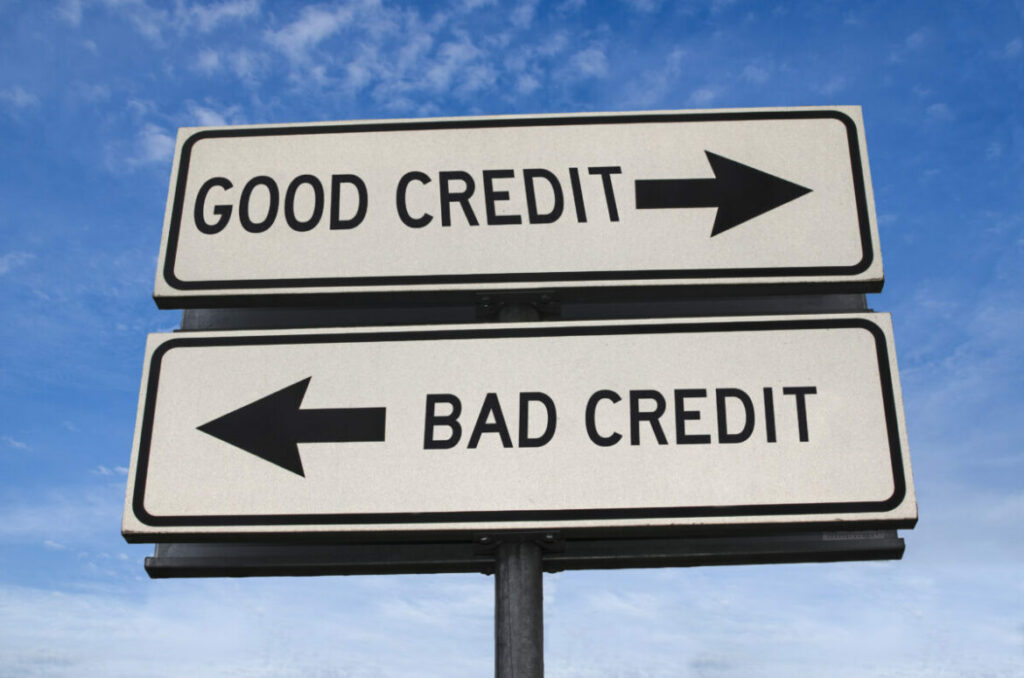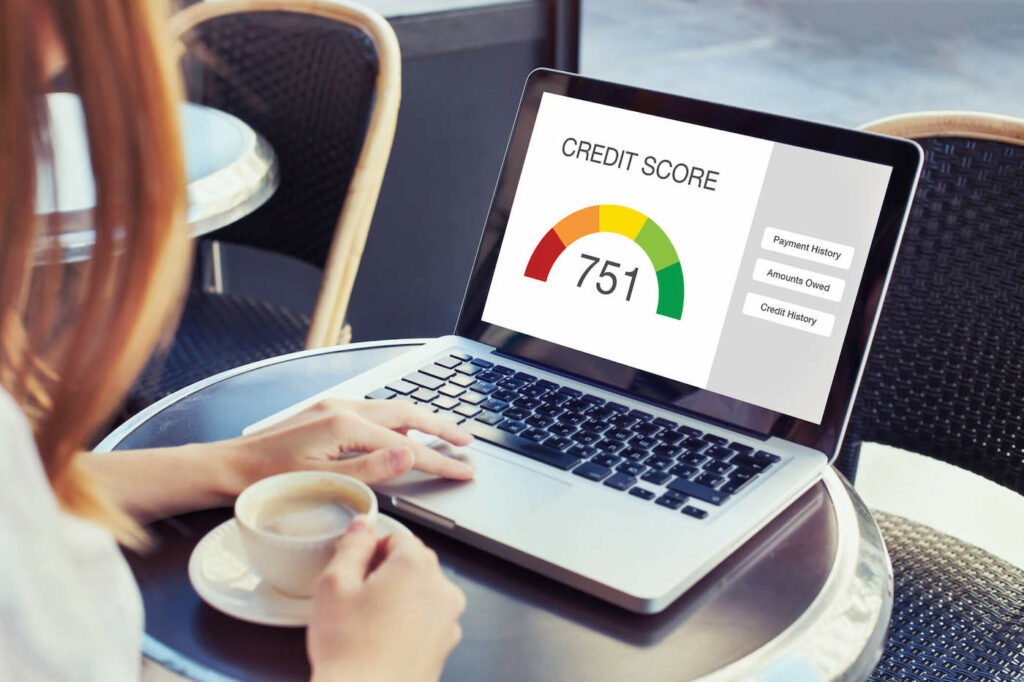If you need to borrow money but you have a bad credit score, there are various bad credit loans available to you, as long as you meet the eligibility criteria. A bad credit score doesn’t necessarily mean you can’t borrow money, it just makes it more difficult to access affordable finance.
In this article, we’ll dive into what bad credit means for loan applications, how you can navigate your situation successfully and still find a borrowing arrangement that suits your needs.
Key takeaways:
- Having a low credit score can impact your borrowing options, but it doesn’t mean you won’t be able to get a loan.
- Numerous options are available for people with bad credit, including secured and guarantor loans.
- Working with a dedicated broker can help you access better loan terms and find solutions that help you build your credit score.
Bad credit loans explained
In simple terms, bad credit loans are available to people with a credit score that might make them ineligible for a traditional loan. Some loans, for example, such as secured loans, aren’t explicitly designed for people with poor credit scores, but they can be more accessible than other financial products.
In most cases, your credit report will be a significant component of a lender’s eligibility criteria, but loans for bad credit look at other factors instead. We’ll explain them in more detail later, but the critical thing to remember is there are borrowing solutions available with bad credit.

The facts on bad credit
Lenders use credit scores to judge whether you’re a reliable borrower. Your credit report has information on previous debts and how you’ve managed them, highlighting late payments, previous defaults on loans and if you’ve filed for bankruptcy.
Credit reference agencies, such as Experian, hold information on your score, which you can access. However, it’s important to remember that agencies have different scoring systems, with Experian considering anything under 720 as a poor credit score.
According to CRIF, almost half of people in the UK don’t know their credit score, and Experian’s map puts the UK’s average credit score at 797, which is considered fair.
Equifax recently implemented a new credit score scale, which now ranges between 0 and 1000, with scores below 438 falling into the poor category.

How your credit report impacts your borrowing options
Lenders are taking a risk when they agree to give someone a loan or credit card, and they want to minimise those risks by ensuring you’re a responsible borrower. Credit checks provide loan providers with a clear picture of your financial history, and the following factors can decrease your score:
- Using over 30% of your available credit.
- Paying your loans or credit card bills late.
- Late or missed payments.
- IVAs and DROs (Debt Relief Orders).
- Applying for loans and credit cards regularly.
If any of the following apply to you, it might mean you have limited borrowing options. If you find a loan or credit card, it will often come with higher interest rates, and lenders will offer less money because they want to minimise the risks.
However, some loans place less emphasis on your credit file.
The types of loans available with bad credit
Many people with a poor credit history feel they have no options available, but that isn’t true. Some loan providers specialise in lending to people who might not be eligible through mainstream avenues, while other loans rely on other factors instead of your credit score.
Secured loans
If you’re a homeowner with equity in your property, you could be eligible for a secured loan. Lenders focus less on your credit history, as you’ll offer up your home as an asset, which gives them more security should you default on the loan.
While secured loans are highly accessible for homeowners, they can also be risky if you fail to meet your monthly repayments. Your eligibility depends on how much equity you own and a property valuation to determine its value.
Secured loan pros:
- Your credit score isn’t a deciding factor when determining your eligibility.
- Secured loans usually come with lower interest rates as lenders have security.
- In most cases, you can borrow more money, and the loan lasts for years instead of months.
Secured loan cons:
- Some people don’t like being tied into a loan for years.
- You could lose your property if you fail to meet your monthly payment obligations.
- It’s easy to borrow more than you need and get into financial trouble.
Personal loans
Also known as unsecured loans, these financial products are available to anyone – regardless of whether they own a property. Instead, lenders look at other factors to determine your eligibility, including your financial situation, employment and credit score.
You can usually borrow between £1,000 and £25,000 with a personal loan, which often runs for one to five years.
Personal loan pros:
- An unsecured loan is often more flexible as you can borrow smaller amounts.
- The application process is quicker than secured loans.
- You won’t have to offer lenders valuable assets.
Personal loan cons:
- Lenders might be unwilling to accept people with poor or even fair credit scores.
- If you are accepted, you’ll have to pay higher interest rates.
- Failing to make repayments could still lead to the lender taking action against you.
Guarantor loans
Guarantor loans are popular for people with bad credit because they enable the use of a second person. The lender will ask for a guarantor to sign an agreement, saying they’ll be responsible for the repayments if the main borrower cannot pay, which offers more security.
However, guarantors must be over 21 and have good to excellent histories, as well as being able to prove their financial stability. Most people ask a friend or family member to be their guarantor, but spouses or someone you share a bank account with isn’t eligible.
While guarantor loans are beneficial, they can be challenging, as many struggle to find a suitable second person.
Guarantor loan pros:
- Lenders will accept you with a low credit score (providing you find a guarantor).
- Some people can borrow more money, as they’re giving the lender more security.
- Making regular repayments can build your credit rating.
Guarantor loan cons:
- You might not find someone willing to be responsible for your loan.
- Guarantor loans usually have higher interest.
- If you default on the loan, it could severely impact your relationship.
Peer-to-Peer lending
P2P borrowing is relatively new, but some enjoy its convenience. Instead of going through a traditional bank or loan provider, you can head to an online platform and make your application.
Many P2P platforms perform a credit check and look at other factors, including your income, before deciding – but some people with low credit are accepted. Once you receive the money, you’ll repay the lenders.
P2P lending pros:
- Some platforms will let you borrow under £1000.
- The application process is usually quite speedy.
- You can use the money for a range of purposes.
P2P lending cons:
- Many platforms that offer loans to people with bad credit will have higher interest rates.
- Using P2P lending means you don’t have the protection you get with other loans.
- You might have to factor in additional fees apart from the loan repayments.
Are bad credit loans a good idea?
That depends on numerous factors, including whether you need the money and the bad credit loan you choose. Before making a decision that could worsen your financial situation, it’s essential to consider whether it’s the right time to apply for a loan.
By exploring the following factors, you can make a decision that gives you peace of mind.
Is borrowing money necessary?
People with low credit scores inevitably receive high-interest rates, but having a good credit history means you might get a lower interest rate, as lenders see you as more responsible. Some people prefer to build their credit before applying for a loan.
Of course, if you need the money immediately, this isn’t an option—but taking small steps to improve your credit rating can open up your options.
Effective ways to boost your score include:
- Paying your bills on time and not missing any payments.
- Keeping your utilised credit limit below 30%.
- Signing up with a credit reference agency to monitor your score.
- Review your report for any errors and discrepancies.
- Keeping your oldest bank accounts open.
- Making sure you register on the electoral roll.
- Reducing your spending.
- Applying for a credit builder card.
Remember, poor credit histories can improve with time and effort, and making small changes can boost your score.
Would exploring an alternative be better?
If you’re unsure whether a loan will benefit your current circumstances, some alternatives might offer more flexibility. However, they also require consideration, as there are some drawbacks associated with these options.
Using your credit card
If you have a credit card with reasonable interest rates, you could avoid applying for a loan and use your card instead. However, a loan could give you more control if you’re close to a 30% limit or already have high rates.
Arranged overdrafts
Some people prefer to use their arranged overdraft, but the interest is often excessive, and overdrafts are really for emergencies.
Savings
Savings are another avenue to explore, but it also depends on whether you’d rather keep the money as an emergency fund.
Discover bad credit loans today
A bad credit loan doesn’t have to be inaccessible—especially with a dedicated broker on your side. Believe Money specialises in helping people find the right borrowing solutions, regardless of their circumstances.
If you have a poor credit history, we can help you. With access to a network of specialist lenders, our brokers will work with you to find loans with competitive interest rates and terms that align with your needs.
Please feel free to contact us today for a free consultation.
How much can I borrow with a bad credit score?
Getting a loan with bad credit means you’ll receive less money than someone with a good credit score. The main reason is that lenders want to minimise their risks, but you should know how much you’re eligible for when you complete the loan application.
I’m on benefits; can I still get a bad credit loan?
It depends on the lender, as some will class you as receiving a regular income if you’re claiming Universal Credit, but they might refuse the loan if you’re unemployed. People receiving means-tested benefits might be offered a smaller loan amount and have to pay high-interest rates.
How long does it take to build up a credit score?
If your credit score is fair or you don’t have much history, you can build it up in a few months, but getting a good to excellent score does take some time. However, people with IVAs and other negative marks on their credit records often have them for six years.

